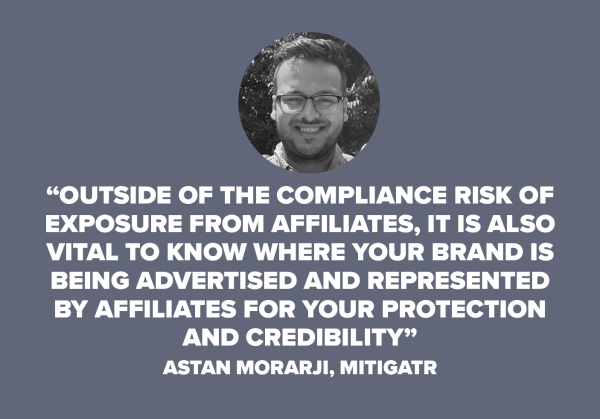Keeping good company: Do you know your affiliates?

Gaming operators have a significant number of checks and balances to consider. Regulatory compliance in the sector extends to multiple operational areas of operators’ activities and, while unforeseen in the past, this has now extended to the activities of third-party marketing partners, generally known (but often misdescribed) as “marketing affiliates”.
‘Know your affiliates’, or ‘KYA’, has become a requirement in and of itself over the past five years. It must be performed to get a clear understanding of who you’re dealing with, what they do, and where they advertise your brand(s), so you can assess how they will represent you as an affiliate. This has become a norm in the industry and has been further solidified into compliance requirements arising from the latest version of the Gambling Industry Code for Socially Responsible Advertising.

The core issue with KYA is inherent: how much do you know about your affiliates, what is the ‘right’ information to be collecting, and what should you be doing to ensure ongoing compliance? In other words, KYA today, and KYA in the future too.
Outside of the compliance risk of exposure from affiliates, it is also vital to know where your brand is being advertised and represented by affiliates for your protection and credibility. From an AML perspective, knowing exactly who your third party suppliers are, how they operate and who is receiving funds for performance of the marketing, are all critical aspects of ensuring ongoing AML regulatory compliance for an operator.
Something that has become apparent is that although affiliates drive up to 25% of all player acquisitions in igaming, 68% of what affiliates are promoting is estimated to be unknown. This begs the critical question: does an affiliate have an operator brand’s best interests at heart?
Compliance compatibility
Questions and considerations for igaming operators should include whether your brand is being promoted on porn sites, to underage audiences, with inappropriate banners, or hiding unapproved ads and brand references on closed social media pages and groups. What websites does the affiliate own? Where on these sites are your advertisements being shown?
Are affiliates spamming email lists with your brand? Are the ads being displayed on social gaming platforms without express permission? Are affiliates bidding on your brand terms and competing against your own marketing team?
As with any professional relationship, compliance compatibility is just as important as commercial compatibility. Turning a blind eye to how a company you are affiliated with functions and operates will not protect you.
Keeping good company in this respect starts by asking the right questions, collecting the right data, and assessing an affiliate through the eyes of the regulations in force. Even more so, it becomes a matter of challenging this data, assessing future commercial considerations against compliance risks, and ensuring that you have a robust set of systems and processes in place that can mitigate all of these risks from using third party marketing partners.
Before binding yourself with a contractual relationship, igaming operators must make sure that they are satisfied that a potential business partner is compliant with the multiple laws, regulations and codes and, thereafter, to always ensure that an affiliate is keeping up with their side of the compliance requirements with regular checks, monitoring and reviews.

